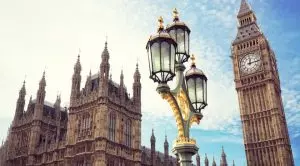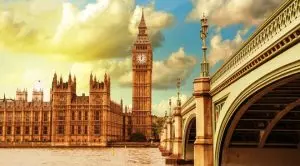 The main regulatory body of gambling in the UK – the UK Gambling Commission (UKGC) – has promised that it would tighten the regulatory regime in order to better control illegal gambling websites linked to popular computer games. The measures are planned to be taken after an increase has been registered in black-market activity.
The main regulatory body of gambling in the UK – the UK Gambling Commission (UKGC) – has promised that it would tighten the regulatory regime in order to better control illegal gambling websites linked to popular computer games. The measures are planned to be taken after an increase has been registered in black-market activity.
As revealed by the Commission, a large part of the skins betting market is associated to Counter Strike: Global Offensive (CSGO), with the popular computer game having sold over 25 million copies on a global scale. The game offers a special platform on which players are given the chance to trade various skins, but illegal websites that offer such trading for real money have also been created.
According to a recent research carried out by Eilers & Krejcik Gaming and Narus Advisors, currently over 100 skins gambling websites exist, with a little less than half of the skins offered (45%) were bet on e-sports, in tournaments between professional players which were aired on the Internet. Other 38% were bet on lottery or roulette-style games which were not related to the original games which feature the skins.
The problem has reached young players, too, with a member of the UK Council for Child Internet Safety reporting that there were even children at the age of 11 that had been caught gambling on such websites.
UK Gambling Commission’s Position and Strategy
 The Chief Executive Officer of the UKGC, Sarah Harrison, has shared that “skins” betting, which involves using computer-game currencies and upgrades to allow real-money gambling, is one of the Commission’s top priorities for the time being.
The Chief Executive Officer of the UKGC, Sarah Harrison, has shared that “skins” betting, which involves using computer-game currencies and upgrades to allow real-money gambling, is one of the Commission’s top priorities for the time being.
The illegal betting market has been helped to emerge from the in-game credits that are found particularly attractive by under-age players. The illegal betting market is currently valued at approximately £4 billion on an annual basis globally.
According to the data cited by UK Gambling Commission’s boss, one in five of the illegal operations which have been officially suspended by the UK gambling regulatory authority in the period from 2017 to date facilitated the so-called skins betting. Ms. Harrison described these websites as “parasites” which operate on the back of perfectly legal and well-established gaming platforms.
The Chief Executive Officer of the UKGC further explained that a more comprehensive strategy is to be used in order for the regulator to be given the chance to attack such businesses more effectively in order to deal with the problem. Ms. Harrison shared that it would be a better idea for the Commission to attack such lawbreakers from every angle possible, isolate them and by this, stop the financial inflow towards them.
The UK Gambling Commission’s boss also urged local gambling operators to realise that they bear responsibility for dealing with the problem and shared that the country’s gambling regulatory body would put payments handling companies under pressure in order for them to be forced to break their partnerships with such illegal websites.
Future Measures
 Further measures are expected to be brought into action. Actually, computer game betting issues have been expected to be involved at the upcoming discussions at the European Parliament as part of a special event to be held on September 6th.
Further measures are expected to be brought into action. Actually, computer game betting issues have been expected to be involved at the upcoming discussions at the European Parliament as part of a special event to be held on September 6th.
Currently, problem gambling and gambling addictions have been among the most serious issues related to gambling activities in the UK. Over 430,000 people in the country have been reported as problem gamblers, with their number constantly increasing these days. According to the most recent report released by the UK Gambling Commission, other 550,000 people have been reported as moderate-risk punters, and another 1.4 million being considered to be low-risk ones.
The report came at a time when the UK Government is being expected to publish the results of its industry review. Local authorities have been urged to recommend and implement stricter measures in order to reduce British players’ spending on fixed-odds betting terminals (FOBTs). The review was first expected to be presented in June, but certain misunderstandings between the Department for Culture, Media and Sports (DCMS) and UK Treasury led to its postponement until the autumn of 2017.
- Author


